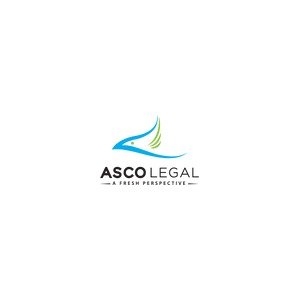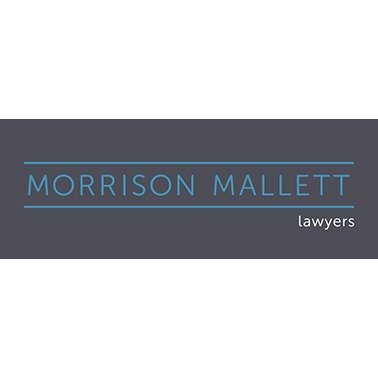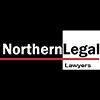Best Legal Document Lawyers in Auckland
Share your needs with us, get contacted by law firms.
Free. Takes 2 min.
List of the best lawyers in Auckland, New Zealand
About Legal Document Law in Auckland, New Zealand
Legal document law in Auckland, New Zealand, encompasses a wide range of legal documents that individuals and businesses may encounter. These include contracts, wills, trusts, power of attorney, leases, and more. In Auckland, legal documents must comply with New Zealand's legal framework, ensuring they are valid, enforceable, and meet all statutory requirements. Legal professionals in Auckland are well-versed in both local and national laws, guiding clients through the complexities of legal documentation and ensuring their rights and intentions are adequately protected.
Why You May Need a Lawyer
There are several scenarios in which you might need legal assistance with legal documents:
- Drafting or Reviewing Contracts: To ensure contracts are comprehensive and enforceable.
- Establishing Wills and Trusts: To make sure your wishes are legally documented and will be executed appropriately after your passing.
- Business Transactions: Such as mergers, acquisitions, or collaborations where legal documentation is crucial.
- Power of Attorney: Setting up a power of attorney requires precise legal language and understanding of duties and responsibilities.
- Leasing Agreements: Whether you are a tenant or a landlord, having solid legal agreements helps in avoiding future disputes.
- Employment Contracts: To clarify roles, responsibilities, and expectations from both parties involved.
Local Laws Overview
Legal document laws in Auckland fall under New Zealand’s broader legal framework. Key aspects include:
- The Contract and Commercial Law Act 2017: Governs the legality of contracts, ensuring they meet requirements such as offer, acceptance, intention to create legal relations, and consideration.
- The Property Law Act 2007: Covers the transfer of property ownership, leasing, and rental contracts.
- The Wills Act 2007: Stipulates how wills should be written and validated to ensure they are enforceable.
- The Privacy Act 2020: Influences how personal information can be collected, used, and disclosed in legal documents.
Frequently Asked Questions
What is the validity of a digital signature in Auckland legal documents?
Digital signatures are recognized in New Zealand and can be used for most legal documents as long as they meet requirements outlined in the Electronic Transactions Act 2002.
Can I draft my own legal documents without a lawyer?
Yes, you can draft your own documents; however, consulting a lawyer is highly recommended to ensure legal compliance and protection of your interests.
What should be included in a basic contract?
A basic contract should include the offer, acceptance, consideration, mutual consent, and legal purpose, along with specific terms and conditions relevant to the agreement.
What happens if a legal document is not notarized?
Notarization is not always required, but it can add a layer of validation. Some documents, such as affidavits, must be notarized to be considered valid.
How can I contest a will in Auckland?
To contest a will, you generally need legal grounds such as testamentary capacity or undue influence. It is advisable to seek legal advice to understand your rights and procedures.
What are the risks of signing a legal document without reading it thoroughly?
Signing without reading can lead to unintended legal obligations, financial losses, or violation of rights. It is crucial to fully understand any document you sign.
How do I dissolve a legal partnership in Auckland?
Dissolution processes should follow the partnership agreement terms. In the absence of such terms, seeking legal counsel is advisable to manage the dissolution amicably and legally.
When does a power of attorney become effective?
A power of attorney can become effective immediately after it is signed or upon the occurrence of a specific event as outlined in the document.
Is it necessary to renew a lease agreement every year?
No, lease agreements can be self-renewing or fixed-term; however, reviewing terms periodically is beneficial, especially if circumstances change.
What should I do if a party breaches a contract?
If a breach occurs, review the contract terms, gather evidence, and reach out to the other party for negotiation. Legal advice can help determine further actions, such as mediation or litigation.
Additional Resources
For more information and assistance related to legal documents in Auckland, you may consider the following resources:
- New Zealand Law Society: Offers guidance and resources for finding qualified legal professionals.
- Community Law Centres: Provide free legal advice and assistance to those in need.
- Citizen's Advice Bureau: Aimed at providing accessible general advice and information.
- Ministry of Business, Innovation and Employment: Offers resources related to business laws and practices.
Next Steps
If you need legal assistance with documents, consider the following steps:
- Identify Your Needs: Clearly determine the type and purpose of the legal document required.
- Research Legal Professionals: Look for lawyers with specialization in the relevant area, and verify their credentials and experience.
- Schedule Consultations: Many lawyers offer initial consultations to discuss your needs and potential approaches.
- Prepare Documentation: Gather relevant paperwork or background information needed for your legal issue.
- Proceed with Legal Drafting or Review: Work collaboratively with your lawyer to ensure your documents meet all legal requirements and protect your interests.
Lawzana helps you find the best lawyers and law firms in Auckland through a curated and pre-screened list of qualified legal professionals. Our platform offers rankings and detailed profiles of attorneys and law firms, allowing you to compare based on practice areas, including Legal Document, experience, and client feedback.
Each profile includes a description of the firm's areas of practice, client reviews, team members and partners, year of establishment, spoken languages, office locations, contact information, social media presence, and any published articles or resources. Most firms on our platform speak English and are experienced in both local and international legal matters.
Get a quote from top-rated law firms in Auckland, New Zealand — quickly, securely, and without unnecessary hassle.
Disclaimer:
The information provided on this page is for general informational purposes only and does not constitute legal advice. While we strive to ensure the accuracy and relevance of the content, legal information may change over time, and interpretations of the law can vary. You should always consult with a qualified legal professional for advice specific to your situation.
We disclaim all liability for actions taken or not taken based on the content of this page. If you believe any information is incorrect or outdated, please contact us, and we will review and update it where appropriate.

















